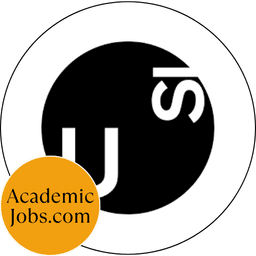Higher Education Jobs in Ticino
Ticino offers vibrant academic opportunities, with leading institutions driving innovation in fields like finance, technology, and hospitality. Nestled in the southern part of Switzerland, this Italian-speaking canton blends Mediterranean charm with Swiss precision, making it a unique hub for higher education jobs in Ticino. Academic careers in Ticino are enriched by a multicultural environment and proximity to major European cities like Milan. Discover professor ratings and connect with the academic community through Rate My Professor.
Whether you're seeking professor positions in Ticino or research jobs in Ticino, this canton offers a dynamic landscape for academic growth. Explore careers and resources tailored to higher education jobs in Ticino at AcademicJobs.com.
Top Universities in Ticino:
Faculty Job Opportunities in Ticino
Pursue rewarding careers in Ticino with roles like Assistant Professor, Lecturer, and Research Fellow. Ticino's academic sector is known for its focus on interdisciplinary studies, particularly in finance, technology, and tourism management, reflecting the canton's strategic location and economic strengths. Salaries for faculty jobs in Ticino vary by institution and experience, with competitive ranges often between CHF 80,000–CHF 140,000 annually for mid-level positions, based on recent data. The demand for lecturer roles in Ticino and professor positions in Ticino is growing, especially in fields aligned with Switzerland's innovation economy. AcademicJobs.com offers a comprehensive platform to explore these opportunities with job listings filtered specifically for Ticino at Ticino Faculty Jobs.
Ticino's academic institutions often collaborate with international organizations and nearby Italian universities, creating unique opportunities for research jobs in Ticino. Faculty at institutions like the Università della Svizzera italiana (USI) are at the forefront of cutting-edge research in data science and sustainable development. Whether you're an early-career academic or a seasoned professor, Ticino offers tenure-track positions and short-term contracts to suit diverse career goals. The region's academic job market is bolstered by a high quality of life, making it an attractive destination for higher education jobs in Ticino. For the latest openings, check out Faculty Positions and Research Jobs on AcademicJobs.com.
Why Pursue a Career in Ticino Academia
Academic careers in Ticino offer a unique blend of Swiss efficiency and Mediterranean lifestyle, making it an appealing choice for faculty and researchers. The canton is home to innovative research opportunities, particularly in fields like financial technology and cultural studies, driven by its proximity to Italy and strong economic ties. Ticino's academic institutions emphasize international collaboration, providing a global platform for academic opportunities in Ticino. Additionally, the region's stunning landscapes, from Lake Lugano to the Alps, offer an inspiring backdrop for intellectual pursuits. Explore these opportunities and more at AcademicJobs.com.
Salary Guide for Faculty in Ticino
Faculty salaries in Ticino vary by role, institution, and experience level, but they are generally competitive within Switzerland's high-cost living context. Based on recent data, Assistant Professors in Ticino can expect salaries ranging from CHF 80,000 to CHF 100,000 per year, while Associate Professors earn between CHF 100,000 and CHF 130,000 annually. Full Professors at top institutions may command salaries upwards of CHF 150,000, reflecting the premium placed on expertise in this region. These figures are influenced by factors such as the cost of living in Ticino, which is slightly lower than in cities like Zurich or Geneva, and the type of institution—public universities often offer structured pay scales with benefits like pension contributions. For detailed salary insights, visit Professor Salaries on AcademicJobs.com. 📊
Salaries for academic careers in Ticino also depend on discipline, with fields like computer science and finance often offering higher compensation due to industry demand. Additionally, Ticino's universities may provide allowances for housing or relocation, especially for international hires, given the region's appeal to global talent. The cost of living adjustments and tax benefits in Switzerland further enhance the attractiveness of faculty salaries in Ticino. Newcomers should note that salaries are often negotiated based on prior experience and research output, so a strong publication record can significantly boost earning potential. For location-specific insights, check resources at Academic Career Advice. 📍
Weather and Climate in Ticino
Ticino enjoys a milder climate compared to the rest of Switzerland, often described as Mediterranean due to its location south of the Alps. Average temperatures range from 3°C in winter (December to February) to 24°C in summer (June to August), with Lugano seeing about 2,200 hours of sunshine annually—among the highest in the country. This pleasant weather supports an outdoor lifestyle, ideal for academics balancing work and leisure. Summers are warm and perfect for exploring lakes and mountains, while winters are mild, rarely dropping below freezing, though occasional snowfall occurs in higher elevations. These conditions make Ticino an attractive destination for campus visits or conferences year-round. ☀️
The climate in Ticino also impacts academic life positively, with many university events and research activities taking advantage of the scenic outdoors. Spring and autumn are particularly beautiful seasons for networking events or field research, with moderate temperatures and vibrant landscapes. Newcomers to Ticino should plan campus visits during late spring (May) or early autumn (September) to experience the best weather. However, be prepared for occasional heavy rainfall, especially in autumn, which can affect commuting to universities in rural areas. Overall, Ticino's weather enhances the appeal of academic careers in Ticino, offering a refreshing contrast to the harsher climates of northern Switzerland.
Work Environments in Ticino Universities
Work environments in Ticino universities are characterized by a blend of Swiss structure and Italian warmth, fostering collaborative and innovative campus cultures. Institutions like USI prioritize interdisciplinary research, with modern facilities and a strong emphasis on internationalization—many programs are offered in English to attract global talent. Faculty report high satisfaction with work-life balance, supported by Switzerland's labor laws ensuring reasonable working hours and generous vacation policies. Hybrid work options are increasingly common, especially post-pandemic, allowing academics to balance teaching and research effectively. Diversity initiatives are also prominent, reflecting Ticino's multicultural identity as a bridge between northern and southern Europe.
Ticino's academic institutions offer state-of-the-art resources, from research labs to libraries, often set against stunning natural backdrops that inspire productivity. The region's smaller size compared to larger Swiss cities means tighter-knit academic communities, fostering mentorship and collaboration. Additionally, proximity to urban centers like Lugano provides access to cultural amenities, while nearby natural landscapes offer opportunities for relaxation. For those considering academic opportunities in Ticino, the supportive work culture and scenic environment are significant draws. Learn more about faculty experiences through Rate My Professor on AcademicJobs.com. 💼
Lifestyle and Cost of Living in Ticino
Ticino offers a high quality of life with a Mediterranean flair, making it a desirable location for academics. The cost of living is significant but lower than in Zurich or Geneva; average monthly rent for a one-bedroom apartment in Lugano is around CHF 1,200–CHF 1,500, while groceries for a single person cost approximately CHF 400 per month. Housing options range from urban apartments to suburban homes near lakes and mountains, catering to diverse preferences. Transportation is efficient, with excellent rail connections to Milan and other Swiss cities, though owning a car can be beneficial for exploring rural areas. Ticino's cultural attractions, including festivals like the Locarno Film Festival, enrich the lifestyle for faculty and students alike.
Dining in Ticino reflects its Italian influence, with affordable yet high-quality options—think lakeside trattorias serving risotto and polenta. Recreational activities abound, from hiking in the Alps to sailing on Lake Lugano, offering academics a perfect work-life balance. Compared to national averages, Ticino's cost of living is slightly below Switzerland's priciest regions, though still high by European standards. For academics relocating, budgeting for initial costs like security deposits (often three months' rent) is advisable. The vibrant arts scene and outdoor lifestyle make Ticino an enriching place for higher education jobs in Ticino. Explore career paths that match this lifestyle at AcademicJobs.com.
Rate My Professor: Top Educators in Ticino
Find and celebrate top educators in Ticino with Rate My Professor on AcademicJobs.com. This platform allows students and peers to rate professors based on teaching style, clarity, and engagement, helping you choose the best courses or mentors. Whether you're a student planning your academic journey or a job seeker researching faculty culture, professor ratings in Ticino provide valuable insights. Join the community to share your experiences and recognize excellence in Ticino academia.
Career Progression in Ticino Academia
Career paths in Ticino academia typically follow a structured progression from Assistant Professor to Associate and Full Professor roles, with opportunities for tenure-track positions at leading institutions. Salaries increase with rank, often starting at CHF 80,000 for entry-level roles and reaching CHF 150,000+ for senior positions. Research funding is robust, especially in fields like fintech and sustainability, reflecting Ticino's economic strengths. Local industry partnerships, particularly in finance and tourism, provide additional avenues for applied research and career growth. Find tailored opportunities at Tenure-Track Positions on AcademicJobs.com.
Research and Trends in Ticino Higher Education
Ticino's higher education landscape is shaped by trends in digital innovation, sustainable tourism, and cross-border collaboration with Italy. Research at institutions like USI focuses on data science, financial modeling, and cultural heritage, often supported by Swiss National Science Foundation grants. Interdisciplinary programs are on the rise, blending technology with social sciences to address global challenges. Opportunities for academic careers in Ticino are further enhanced by partnerships with international organizations, making it a hub for impactful research. Stay updated on these trends at Research Jobs.
Resources for Ticino Academics
- Swiss University Conference: A key platform for networking and policy updates. 🎓
- Swiss National Science Foundation: Offers funding for research projects in Ticino. 💼
- Academic Journals in Finance and Technology: Access through university libraries. 📚
- Annual Lugano Tech Summit: A must-attend for academics in digital fields. 📍
Student Perspectives in Ticino Higher Education
Students in Ticino benefit from a unique blend of Swiss quality education and Italian cultural influence, with programs often available in multiple languages. Choosing the right professor is crucial—use Rate My Professor to find top educators. Career outcomes are strong, especially in finance and hospitality, with internships readily available in Lugano. The region's mild weather and scenic beauty also enhance student life, making Ticino a top choice for higher education. Explore student resources and academic opportunities at PhD Opportunities.









